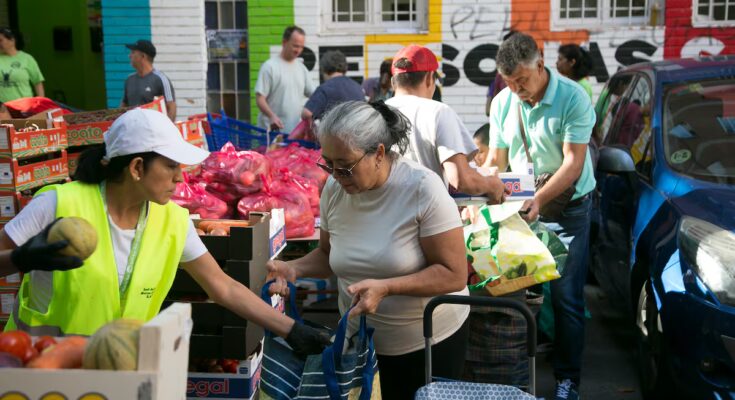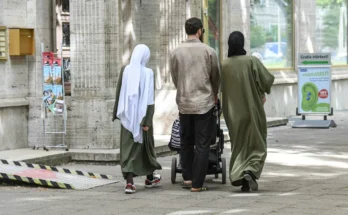The ecosystem of non-profit social action entities in Spain is made up of almost 28,000 organisations, mostly very small and local, employing almost 610,000 people. This is what the report says The third sector of social action in Spain (2008-2024): development, impact and future challenges, commissioned by the Botín Foundation to researchers from the CSIC and the University of Alcalá and published this Wednesday. The study analyzes 16 years of evolution of these institutions, which increased their revenues by 13% and reduced their dependence on the public sector by 12 percentage points. The information is based on analysis of annual barometers from social action NGOs and the defunct Luis Vives Foundation, along with qualitative studies.
Íñigo Sáenz de Miera, general director of the Botín Foundation, underlined on Wednesday, during the presentation of the report in the Madrid headquarters, that the sector is “anti-cyclical”: “When the economy worsens, we must strengthen ourselves because we accompany those who are excluded when there is a crisis. We generate economy and employment when there is no growth”. The third sector went from 16.8 billion euros in 2008 to 19 billion in 2023. It represents 1.2% of the national GDP. The report states that its development was affected by the Great Recession of 2008, followed by the COVID-19 crisis and the current geopolitical crisis. “A perfect storm, fewer resources and many more needs to take care of,” commented Sáenz de Miera.
The social fabric has been mobilized to respond to the profound social changes of this century, according to the study: “the aging of the population, disability and dependence, new forms of social exclusion, the integration of the immigrant population, the dynamics of gender equality, the guarantee of children’s rights and the reorganization of the care system”. Luciano Poyato, president of the Third Sector platform, clarified: “There are still 12 million people at risk of exclusion, even if the figure has decreased, we must continue to worry, because inequalities are increasing.”
The characteristic of the sector is that almost half of the social bodies (49%) are organizations with an income of less than 30,000 euros that operate at a local and provincial level. This is because they “respond to proximity problems, which transform this sector into small landowners,” according to the study. 29% are small (between 30,000 and 300,000 euros), 11% medium (300,000 and 1 million) and almost 11% large (more than 1 million euros). There is a contrast between a small nucleus of large organizations and an “immense majority of small ones”. These are mostly associations, but also foundations and cooperatives.
The number of organizations did not change over the period included in the analysis, but they increased their activity by 11%. The number of direct services provided increased from 42 million in 2008 to 47 million in 2023, with 28 million beneficiaries. The document highlights that “housing activity was drastically reduced between 2015 (8.7%) and 2024 (0.7%) despite currently being the issue of greatest social concern”.
Financial sustainability is one of the biggest challenges. Although the sector has “increasing relative autonomy”, the report suggests that “liquidity problems are a chronic problem”. Dependence on public resources has been reduced from 61.3% in 2008 to 48.9% in 2023, but many entities continue to have it as their sole source. Private financing has reached 21.8% and own financing already represents a third of total income (30.2%). EU aid is limited to large entities, “given the high management and accountability requirements required for its granting”.
Employment generated by the third sector of social action grew by 15%, from 529,000 people in 2008 to almost 610,000 in 2023. They represent almost 3% of the Spanish employed population. However, most entities have fewer than six contract employees. 73.9% are women. Furthermore, 16% of workers are people with disabilities. The report highlights that in 2023, 73.1% of employees had diploma or degree level studies, which is higher than the nationally contracted employment (46.5%).
Volunteers have almost doubled in the last 15 years, reaching 1.5 million people in 2023. 43% participate occasionally and a third of those who do so on a regular basis dedicate more than five hours a week.
Sáenz de Miera insisted on the importance of communicating social impact, because NGOs are considered “bureaucratic or inefficient”. Furthermore, it raised two questions for the future: “How much hybrid models of action are eroding the boundaries between public, private and third sectors; and what role can social entities, which by definition seek the general interest, play in creating meeting spaces in a Spain and a world where it is increasingly difficult to work for the common good.”



